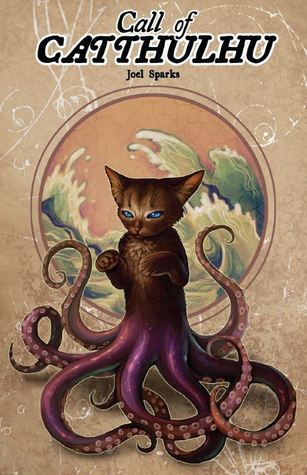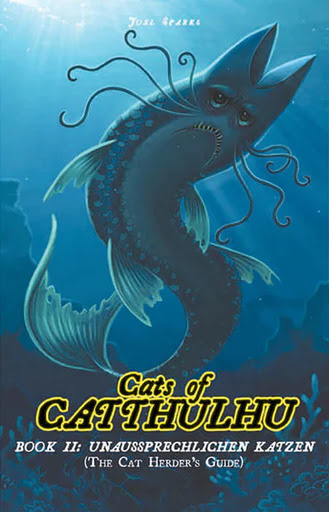Lovecraft derived his pseudonym ‘Lewis Theobald Jr.’, later ‘Grandpa Theobald’ and variants, from the pioneering but much put-upon Shakespeare scholar Lewis Theobald (1688-1744). I’ve now discovered a curious thing relating to this choice.
The discovery occurred this way. I was looking at the early medieval talking-fox cycle Reynard the Fox as a source for Tolkien. Part of the evidence is found in one early version of Tolkien’s “The Tale of Tinuviel”, in which the hero is enslaved by the evil Melko’s lieutenant (“he was in Melko’s constant following”) who is a demon cat called Tiberth, Prince of Cats (“whom the Gnomes have called Tiberth”). This name is very similar to the central tom-cat character in the long and often ribald Flemish tale of Reynard the Fox — Tibert (Flemish). In Dutch Tybert; Old French Tibert; English Gilbert via Chaucer and his translation of the French Tibert; and then the name roots back via philological methods to the Germanic Theobald.
Skeat has… “I take Tybalt to be a shorter form of Theobald, which again is short for Theodbald … The A.S. [Anglo-Saxon] form is Theodbald, which occurs in Beda, [Bede] Hist. Eccl, book. i. c. 34.” (Skeat, Notes on English etymology). The American Century dictionary concurs with… “Thibault, a form of Theobald“.
So, these words were once the common descriptor for a male cat, most likely a dominant and bold one with a long tail. Now, I wonder if Grandpa Theobald knew that?
We can be certain that Lovecraft knew his Pope, and indeed he had minutely studied The Dunciad. He would then have been well aware of the character of Tibbald, the dunce poet in Pope’s Dunciad. We see him in the lines…
in Tibbald’s monster-breeding breast,
sees gods with demons in strange league engage
That sounds very suitable then, for a Lovecraft pseudonym, on these lines alone. The lines are explicated with the pointed footnote… “Lewis Tibbald (as pronounced) or “Theobald (as written) … He was Author of some forgotten Plays, Translations, and other pieces.” The poem’s lines continued on, describing Tibbalt sitting without any supper but surrounded by his library of books and unable to pawn them. He is thus at that very moment selected by a goddess as the most suitable earthly candidate for the ‘Throne of Dullness’, and he ascends to the throne after being initiated by her. Nothing is said by Pope of the connection of the name with cats, and apparently Reynard the Fox was something of a forgotten wonder-of-literature in England until a grand popular revival in the 1850s. In Pope’s time Gilbert or gib-cat was the English name for a male cat, also starting to have the implication of castrated (as society became less rural and thus randy tom-cats became less welcome, in terms of keeping up the local cat population in order to remove mice and rats). Thus if Pope did know the connection of the name with Reynard’s tom-cat, he doesn’t say.
So there’s no evidence there that Lovecraft knew Theobald was the root of a name for a cat. However Lovecraft wrote once to his friend Moe as “Grandpaw Tibbald”, suggesting he was well aware of the Tibbald – Theobald crossover in Pope. He evidently expected Moe to see the allusion, and perhaps even groan at the cat-pun in paw.
Though Lovecraft would also have known that in Shakespeare the character Tybalt is jokingly called ‘Prince of Cats’, ‘good King of Cats’ and ‘rat-catcher’ in Romeo and Juliet. One might then assume he had seen some footnote that explained this obvious allusion and connected it to the variant cat names. According to Lovecraft’s Library (3rd Ed.) Lovecraft owned three Shakespeare editions: Halliwell, 1860; Richard Grant White, 1883-84; William J. Rolfe, 1898. Could any of these have explained things in a note? Halliwell does not note the phrases, and nor does White. Rolfe does, with…
“Prince of cats: Tybert is the name of the cat in Reynard the Fox. Steevens quotes Dekker, Satiromastix, 1602: “tho’ you were Tybert, the long-tail’d prince of cats;” and Have with You, etc.: “not Tibalt, prince of cats.” As St. notes, Tibert, Tybert, and Tybalt are forms of the ancient name Thibault.”
Close, but not quite. We still have to assume that Lovecraft knew Thibault = Theobald. This seems likely, but I can find no firmer evidence that he did. Possibly he just associated Theobald with the common old English personal name, which meant people|bold, shorthand for something akin to ‘prince who boldly defends his people’.
The cat-name survives today in the form of the affectionate name Tibbles, and we can thank Pope for pointing out that this (as Tibbald) was once the correct English pronunciation of Theobald. Thus a suitably historical, and also rather mellifluous, name for a Lovecraftian cat today would be ‘Theobald Tibble’. The ‘s’ being omitted because modern, and also because cats do not care to hear ‘s’ sounds.







